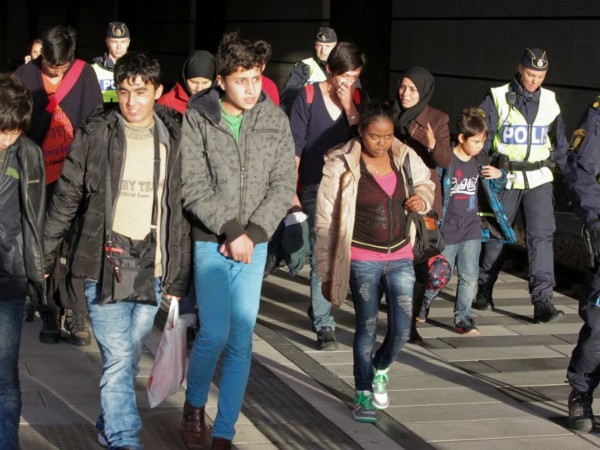Addressing the Complex Issue of Crime and Integration: A Closer Look at the Muslim Migrant Experience in Sweden
Sweden, known for its progressive policies and commitment to social welfare, has faced its fair share of challenges in recent years. One issue that has garnered significant attention is the topic of crime and integration, particularly concerning Muslim migrants. In a diverse society, understanding the complexities of this issue is crucial to ensure informed discussions and effective policy responses. This article aims to delve into the multifaceted dynamics of crime, cultural integration, and their intersection in Sweden.

Context of Crime
It is important to note that crime is a multifactorial issue, often driven by socioeconomic disparities, personal circumstances, and a range of external factors. While headlines may sensationalize incidents, attributing criminal behavior solely to a particular ethnicity or religion oversimplifies the situation. Addressing crime requires a nuanced understanding of the various factors at play, including poverty, education, mental health, and social integration.
Integration Challenges
Sweden’s commitment to welcoming refugees and immigrants is well-established. However, the successful integration of newcomers is a complex process that involves language acquisition, cultural adaptation, and access to employment opportunities. For Muslim migrants, there can be additional challenges related to religious practices and cultural differences. Striking a balance between preserving one’s cultural identity and adapting to the host society can be difficult.
Negative Perceptions and Stereotypes
Media portrayals and public discourse can play a significant role in shaping perceptions of different ethnic and religious groups. Negative stereotypes and biases can perpetuate misunderstandings and contribute to a hostile environment. It is essential to approach discussions about crime and integration with empathy and a commitment to understanding the nuances of each situation.
Importance of Education and Outreach
Efforts to address the challenges faced by Muslim migrants in Sweden must focus on education and outreach. Educating the public about the complexities of integration and the factors contributing to crime can help dispel misconceptions. Providing language classes, cultural sensitivity training, and job placement assistance can empower migrants to become active participants in Swedish society.
Community Engagement
Community engagement plays a pivotal role in fostering a sense of belonging and reducing crime. Creating spaces where different communities can interact, share experiences, and collaborate can help bridge cultural gaps and build trust. Organizations and initiatives that bring together people from diverse backgrounds can contribute to a more inclusive and harmonious society.
Combating Hate and Discrimination
Addressing hate speech and discrimination is crucial for creating a safe environment for all residents. Swedish authorities, alongside civil society organizations, must work together to counter any instances of hatred and xenophobia. Promoting tolerance, inclusivity, and respect for all individuals, regardless of their background, is a shared responsibility. The intersection of crime and integration in the context of Muslim migrants in Sweden is a multifaceted issue that demands a comprehensive approach. Oversimplifications and sensationalism only hinder progress. By fostering understanding, engaging communities, and addressing the root causes of crime, Sweden can move closer to realizing its goal of being an inclusive and harmonious society for all its residents, irrespective of their origins.



